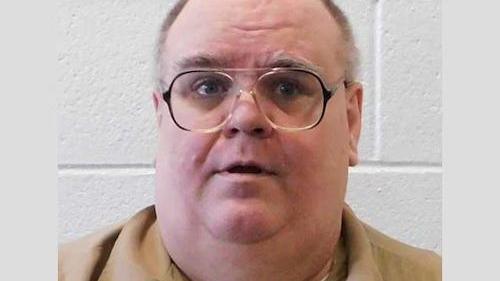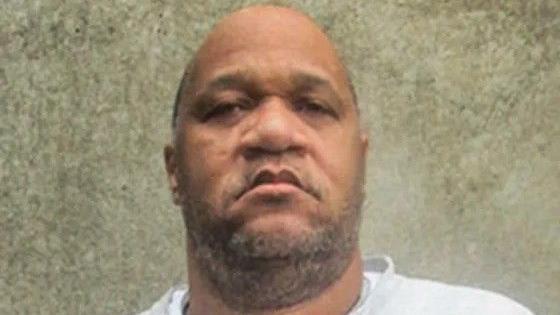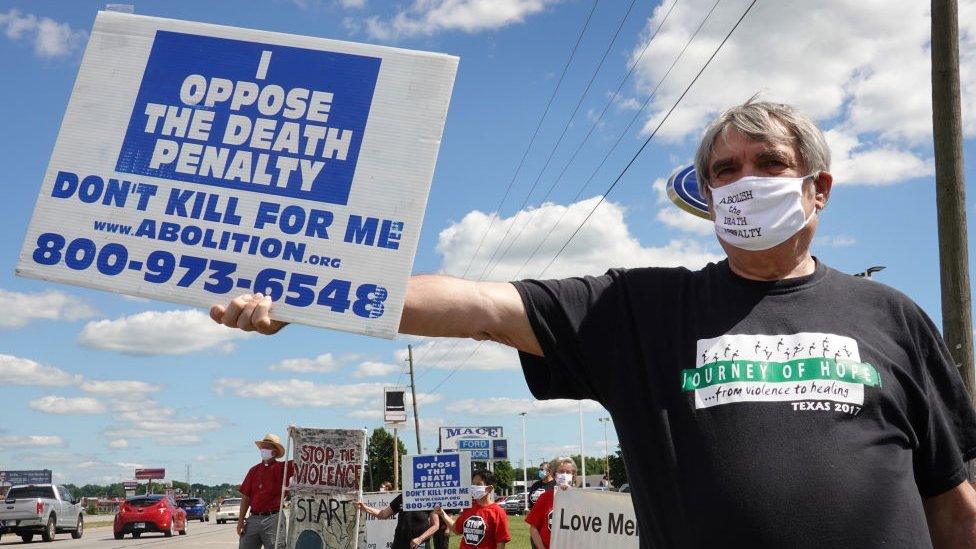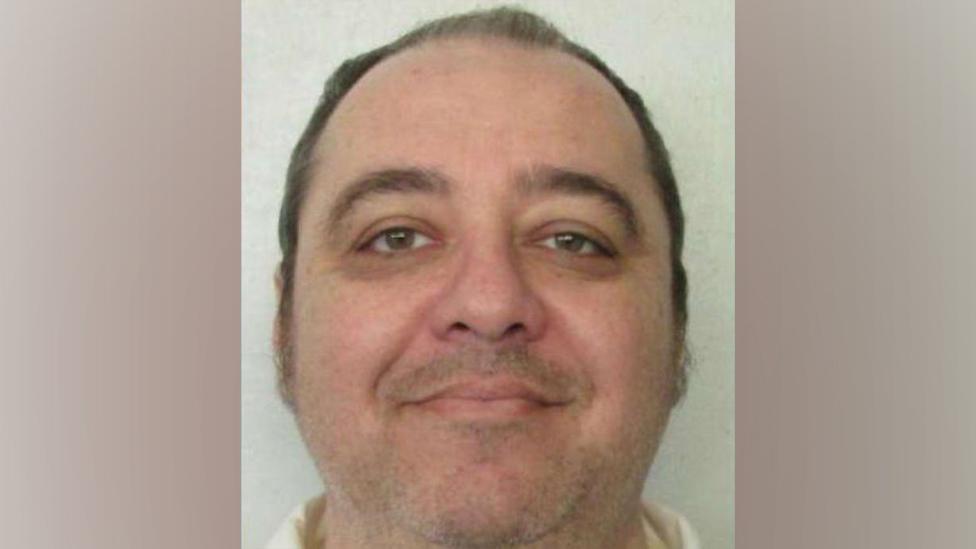Alabama carries out second nitrogen gas execution in US

Alan Eugene Miller is the second death row inmate in the US to be executed by nitrogen gas
- Published
The US state of Alabama has executed Alan Eugene Miller - the second American ever put to death by inhaling nitrogen gas.
Miller, 59, was sentenced to death over the back-to-back workplace murders of Lee Holdbrooks, Christopher Scott Yancy and Terry Lee Jarvis in 1999.
His execution marks the fifth in the US within a one-week span - its greatest use of capital punishment in more than two decades.
Also on Thursday, Emmanuel Littlejohn received a lethal injection in Oklahoma after the state's governor denied a last-minute clemency request.
How many countries still have the death penalty?
- Published25 January 2024
World's longest-serving death row inmate acquitted in Japan
- Published26 September 2024
Miller's execution marks the 18th so far this year - and seven more are scheduled over the remaining three months of 2024.
It also marks the 1,600th execution in the US since the nation's highest court reinstated the death penalty in 1976, according to the Death Penalty Information Center (DPIC) non-profit.
Freddie Owens was put to death last Friday in South Carolina, while Tuesday saw the executions of Marcellus Williams in Missouri and Travis Mullis in Texas.
DPIC data also indicates that July 2003 was the last time so many inmates have received their death sentences within seven days.
Experts have told US media that the timing is a mere coincidence, resulting from changes in execution scheduling as a result of previously botched executions and legal challenges.
For years, executions were on the decline across the country. Thirty-five states have either abolished or not used the death penalty for at least the past decade, according to DPIC.
But the number of executions has risen over the past three years, with Texas, Missouri, Alabama and Florida leading the way.
Last year saw 24 people put to death, up from 18 in 2022 and 11 in 2021.
Alan Eugene Miller
Miller, 59, was sentenced to death over the back-to-back workplace murders of Holdbrooks, Yancy and Jarvis in 1999.
Initially set to die in 2022, he was given a reprieve when officials struggled to connect an intravenous line that would administer his lethal injection.
Earlier this year, the Alabama state Supreme Court cleared the way for Miller to be executed by nitrogen hypoxia, a method that involves an inmate inhaling nitrogen gas through a fitted mask until their body is deprived of oxygen.
Alabama is one of only three states that sanctions this form of capital punishment and carried out its first such execution this past January.
Kenneth Eugene Smith's nitrogen-induced killing was described by the state's attorney general as "textbook" but critics said it appeared painful and inhumane.
"In Alabama, we will not deny justice to the victims of heinous murders," attorney general Steve Marshall said in a statement.
"Tonight, despite misinformation campaigns by political activists, out-of-state lawyers, and biased media, the state proved once again that nitrogen hypoxia is both humane and effective."
Emmanuel Littlejohn

Littlejohn, 52, was sentenced to death for his role in a 1992 robbery gone wrong that ended in the murder of convenience store owner Kenneth Meers.
Both Littlejohn and his accomplice, Glenn Bethany, were charged and convicted over the incident, but Littlejohn's lawyers argued it was not him who fired the fatal shot and that jurors had been confused by their sentencing options.
Littlejohn was 20 years old at the time of his crime and, his lawyers argued, a killing resulting from a robbery should not be subject to the death penalty
Two jurors from his 1994 sentencing and 2000 re-sentencing provided sworn affidavits as part of his recent clemency petition, saying they did not believe he should be put to death.
But prosecutors said two teenage witnesses claimed it was Littlejohn, not Bethany, who pulled the trigger and killed Meers.
The Oklahoma Pardon and Parole Board voted 3-2 last month to spare Littlejohn's life and commute his sentence to life in prison without parole.
Governor Kevin Stitt declined to grant the reprieve, saying: “A jury found him guilty and sentenced him to death. As a law and order governor, I have a hard time unilaterally overturning that decision.”
Littlejohn's mother, daughter and spiritual advisor all witnessed his lethal-injection execution.
Related topics
- Published21 October 2023

- Published26 January 2024

- Published26 January 2024
